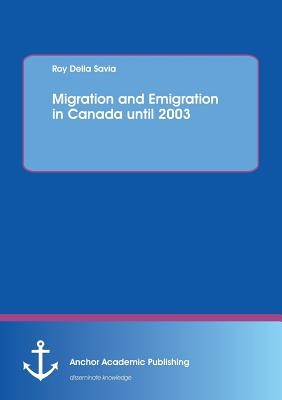
- We will send in 10–14 business days.
- Author: Roy Della Savia
- Publisher: Anchor Academic Publishing
- ISBN-10: 3960671458
- ISBN-13: 9783960671459
- Format: 14.8 x 21 x 1.4 cm, softcover
- Language: English
- SAVE -10% with code: EXTRA
Reviews
Description
This research discusses the relationship between the migration of skilled professional and managerial workers from Canada to the United States, the so-called "brain drain", and seeks to determine if and how the Canada-U.S. Free Trade Agreement (FTA) and the North American Free Trade Agreement (NAFTA) may have affected bilateral flows of permanent and non-permanent immigrants between the two countries. Classical economic theory suggests that trade and factor movements are substitutes, so that freer trade between Canada and the United States could be expected to reduce incentives for bilateral migration. On the other hand, the labor demands of multinational corporations in the emerging global marketplace require a greater degree of worker mobility than has heretofore existed. The research reviews available historic and longitudinal evidence related to political, social and economic effects of the FTA and the NAFTA.
EXTRA 10 % discount with code: EXTRA
The promotion ends in 20d.20:40:06
The discount code is valid when purchasing from 10 €. Discounts do not stack.
- Author: Roy Della Savia
- Publisher: Anchor Academic Publishing
- ISBN-10: 3960671458
- ISBN-13: 9783960671459
- Format: 14.8 x 21 x 1.4 cm, softcover
- Language: English English
This research discusses the relationship between the migration of skilled professional and managerial workers from Canada to the United States, the so-called "brain drain", and seeks to determine if and how the Canada-U.S. Free Trade Agreement (FTA) and the North American Free Trade Agreement (NAFTA) may have affected bilateral flows of permanent and non-permanent immigrants between the two countries. Classical economic theory suggests that trade and factor movements are substitutes, so that freer trade between Canada and the United States could be expected to reduce incentives for bilateral migration. On the other hand, the labor demands of multinational corporations in the emerging global marketplace require a greater degree of worker mobility than has heretofore existed. The research reviews available historic and longitudinal evidence related to political, social and economic effects of the FTA and the NAFTA.


Reviews